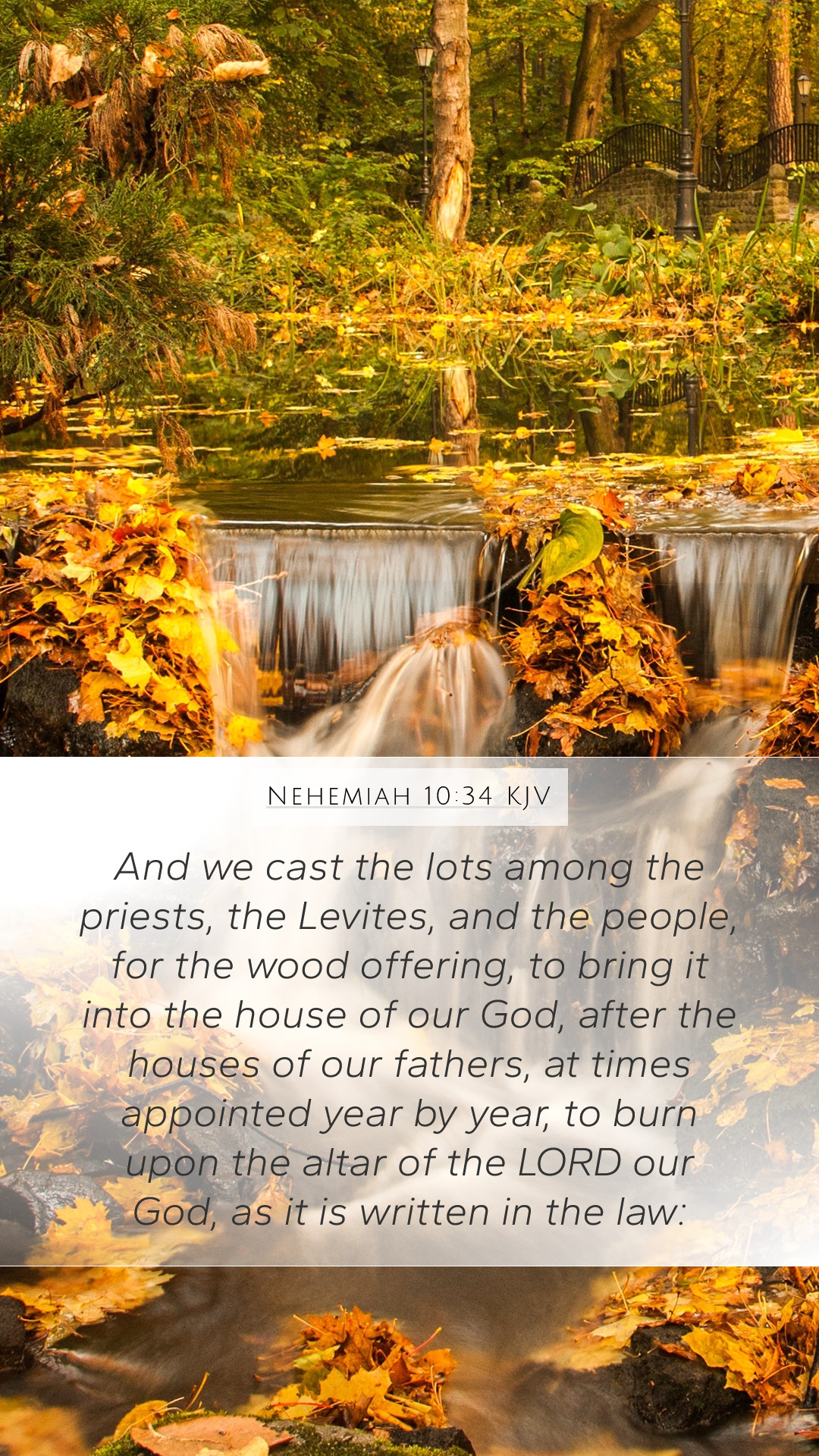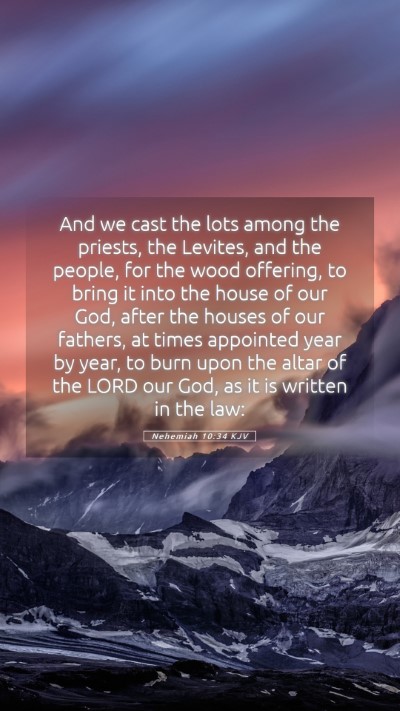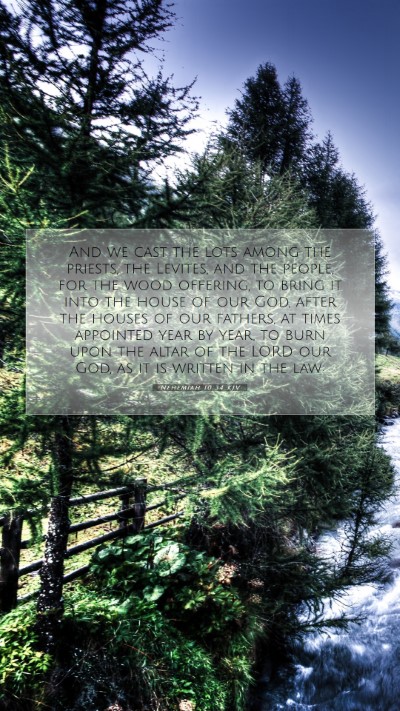Understanding Nehemiah 10:34
Nehemiah 10:34: "And we cast the lots among the priests, the Levites, and the people, for the wood offering, to bring it into the house of our God, after the houses of our fathers, at times appointed year by year, to burn upon the altar of the Lord our God, as it is written in the law."
Overview: In this passage, the people of Israel, having returned from exile, are committed to restoring proper worship and temple practices. They establish a system for regularly providing wood for the altar, emphasizing their dedication to fulfilling the commands of God's law. This act reflects their desire to ensure that sacrifice and worship continue within the house of God.
Bible Verse Meanings and Interpretations
This verse illustrates several key themes which are essential for understanding both the historical context and spiritual significance:
- Commitment to God: The community's decision to cast lots demonstrates their methodical approach to fulfilling obligations to God. This collective action indicates a united commitment to engage in religious duties.
- Importance of Ritual: Offering wood for the altar was a practical necessity that highlights the importance of ritual in the worship of Yahweh. It signifies an understanding that worship requires preparation and intentionality.
- Historical Context: This return to law-based worship came after the Babylonian exile, a period characterized by loss and spiritual desolation. The reinstatement of temple practices symbolizes a restoration of the community's identity as the people of God.
Detailed Exegesis
Matthew Henry's Commentary: Henry emphasizes the collective responsibility of the people to support the temple service. He notes that the casting of lots indicates divine governance in selecting those who will fulfill this important task, which aligns with the theme of God’s providence in the community's affairs.
Albert Barnes' Commentary: Barnes focuses on the procedural aspect of the wood offerings. He points out that these offerings were essential for maintaining the sacred fire on the altar, thus reinforcing the necessity of daily and regular sacrificial practices as per the Law of Moses.
Adam Clarke's Commentary: Clarke highlights the symbolic importance of the wood offering, viewing it as an illustration of the human effort required in worship. He reflects on how such offerings were crucial for maintaining communion with God, underlining that worship is a cooperative endeavor between God and His people.
Application to Today
Understanding Nehemiah 10:34 is not only critical for grasping the historical practices of ancient Israel but also serves as a template for modern believers. Here are some applications:
- Community Involvement: Just as the Israelites participated collectively in temple services, churches today thrive when congregants take active roles in their worship communities.
- Preparation for Worship: The emphasis on preparation (providing wood) speaks to how we ought to prepare our hearts and spaces for worship. This can translate into practical aspects such as volunteering and attending to the needs of our local churches.
- Understanding and Following God's Law: The commitment to observe the written law reinforces the value of understanding Scripture. In-depth study enables believers to cultivate their spiritual lives and apply biblical principles daily.
Cross References
Nehemiah 10:34 connects to several other passages that reinforce its themes:
- Leviticus 6:12-13: This verse discusses the continuous provision of fire for the altar, linking it to the sacred responsibilities outlined in the Mosaic Law.
- Deuteronomy 16:16-17: Here, the scriptures outline the expected offerings during appointed feasts, reflecting the foundational idea of systematic worship.
- Ezra 3:4: The reestablishment of sacrifices in the temple after return from exile parallels the commitments made in Nehemiah.
Conclusion
Nehemiah 10:34 serves as a poignant reminder of the ongoing responsibility of faith communities to engage in worship that honors God. This verse not only encapsulates the historical reinvigoration of Israel’s spiritual practices but also serves as a practical guide for contemporary church life. By committing to organized worship through various means, believers today can draw from these ancient practices as they seek to fulfill their own callings within the body of Christ.
Final Thought: Engaging with this scripture through study groups, online resources, and personal reflection allows deeper insights into its meaning and applications. The lessons from Nehemiah about commitment, community, and worship resonate timelessly across generations.


